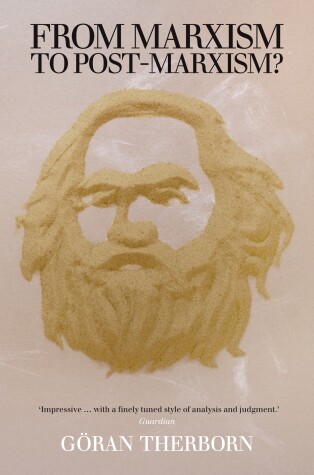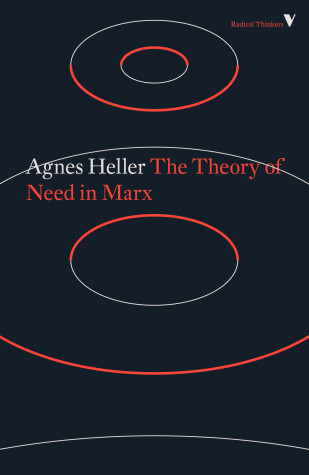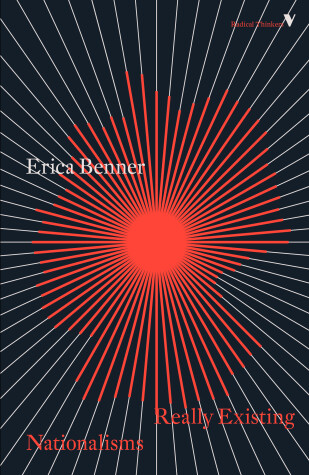Radical Thinkers
1 primary work • 6 total works
Book 16
Radical Thinkers Set 16
by Erica Benner, Ernst Bloch, Agnes Heller, and Goran Therborn
Published 17 April 2018
In this pithy and panoramic work-both stimulating for the specialist and accessible to the general reader-one of the world's leading social theorists, Goran Therborn, traces the trajectory of Marxism in the twentieth century and anticipates its legacy for radical thought in the twenty-first.
“In 1968 we celebrated the one hundred and fiftieth anniversary of the birth of Karl Marx. We still have reason to hope for a concrete celebration in 2018”
With a demonstrably thorough grasp of Marxist thought, and seemingly effortless literary flair, Ernst Bloch provides both the well-versed reader and the novice a truly enjoyable introduction to one of the most influential thinkers in history.
With a demonstrably thorough grasp of Marxist thought, and seemingly effortless literary flair, Ernst Bloch provides both the well-versed reader and the novice a truly enjoyable introduction to one of the most influential thinkers in history.
The basic discoveries underlying Marx's critique of political economy - labour power, surplus value, use value - are all in some way built upon the concept of need. From Marx's varying and passing interpretations of a theory of need, Agnes Heller unravels the main tendencies and demonstrates the importance which Marx attached to the "restructuring" of a system of needs going beyond the purely material. She also brings out those aspects, especially the idea of "radical needs" which point to revolutionary activity and to the project which Marx could only foresee but which for us today is of real urgency: the "society of associated producers". Thus Agnes Heller's study is not only the first full presentation of a fundamental aspect of Marx, but the basis for a discussion of the utmost contemporary relevance.
Really Existing Nationalisms challenges the conventional view that Marx and Engels lacked the theoretical resources needed to understand nationalism. It argues that the two thinkers had a much better explanatory grasp of national phenomena than is usually supposed, and that the reasoning behind their policy towards specific national movements was often subtle and sensitive to the ethical issues at stake. Instead of offering an insular 'Marxian' account of nationalism, the book identifies arguments in Marx and Engels' writings that can help us to think more clearly about national identity and conflict today. These arguments are located in a distinctive theory of politics, which enabled the authors to analyse the relations between nationalism and other social movements and to discriminate between democratic, outward-looking national programmes and authoritarian, ethnocentric nationalism. Erica Benner suggest that this approach improves on accounts which stress the `independent' force of nationality over other concerns, and on those that fail to analyse the complex motives of nationalist actors. She concludes by criticising these 'methodological nationalist' assumptions and 'post-nationalist' views about the future role of nationalism, showing how some of Marx and Engels' arguments can yield a better understanding of the national movements that have emerged in the wake of 'really existing socialism'.
Set 3
In his new book, Goran Therborn - author of the now standard comparative work on classical sociology and historical materialism, Science, Class and Society - looks at successive state structures in an arrestingly fresh perspective. Therborn uses the formal categories of modern system analysis - input mechanisms, processes of transformation, output flows - to advance a substantive Marxist analysis of state power and state apparatuses. His account of these is comparative in the most far-reaching historical sense: its object is nothing less than the construction of systematic typology of the differences between the feudal state, the capitalist state and the socialist state. Therborn ranges from the monarchies of mediaeval Europe through the bourgeois democracies of the west in the 20th century to the contemporary regimes in Russia, Eastern Europe and China. The book ends with a major analytic survey of the strategies of working class parties for socialism, from the Second International to the Comintern to Eurocommunism, that applies the structural findings of Therborn's enquiry in the 'Future as History'. Written with lucidity and economy, What Does the Ruling Class Do when it Rules? represents a remarkable sociological and political synthesis.




